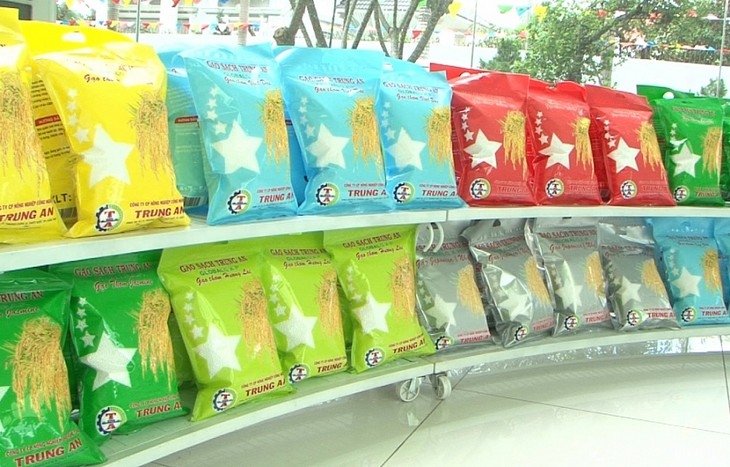Cooperation with OV businesses enhanced to make full use of EVFTA
VOV.VN - The overseas business community, with a deep understanding of the host countries’ markets and much business experience there, serves as a great resource and important link to help Vietnamese businesses promote export following the enforcement of the EU-Vietnam Free Trade Agreement (EVFTA).

The European Union, a market of 500 million people, has an annual GDP of US$18 trillion. The EU is Vietnam’s second most important partner and a huge potential market for large, small, and medium-sized exporters.
Nguyen Ngoc Trieu, Deputy Chairman of the Vietnamese Business Association in Russia, said, “Vietnamese goods have strengthened their foothold in the local market and are popular among local consumers. This is what the FTA has brought us. But most Vietnamese exports to Russia are just raw materials processed and resold by large Russian corporations.”
“Vietnamese enterprises need to engage more in the supply chain from production to consumption. Hopefully, the EVFTA will help Vietnamese businesses become more competitive and Vietnamese brands more widely known,” said Trieu.
The EVFTA is expected to boost Vietnam's exports, especially agricultural and aquatic products and other items in which Vietnam has a competitive advantage.
Among 1 million Vietnamese living in Europe, tens of thousands are business people. During the past few years, overseas Vietnamese businesses have helped domestic ones find investment opportunities and expand their business into the European and other international markets.

Hoang Xuan Binh, Chairman of the Vietnamese Business Association in Poland, suggests ways to boost exports to the EU market, “Domestic businesses need to improve their products’ quality toward EU standards, build brands, and proactively promote their products in the EU.”
Binh added, “They should make a long-term cooperation plan with overseas Vietnamese businesses to explore the market, conduct marketing, promote and distribute products in the EU, and build a logistics model to support import and export activities.”
Overseas Vietnamese businesses agree that, unlike Asian countries, EU countries are concerned about financial information and production capacity of businesses.
It’s important to connect domestic businesses with OV businesses or Vietnamese experts working in the EU to gain an understanding of the EU market, said Vo Van Long, Chairman of the Vietnamese Business Association in Germany.
“With the EVFTA, we hope to increase cooperation with businesses in Vietnam to import commodities in high demand in the EU, like footwear, machinery, household appliances, and pharmaceuticals,” said Long.
By working closely with overseas Vietnamese, made-in-Vietnam products have become popular in the European market.
This has helped promote Vietnamese culture. Vietnamese traditional long dresses – ao dai – made by fashion designer Miss Ngoc Han are a good example.
Han told VOV, “I’ve designed and made many ao dai for ambassadors’ spouses and organized exhibitions to introduce Vietnam’s iconic dress worldwide. I have worked with OVs to set up associations of ao dai fans.”
Vietnam has signed many new generation trade agreements, of which the EVFTA is benefiting Vietnamese businesses the most.
